Quarry protest over fears for homes and health
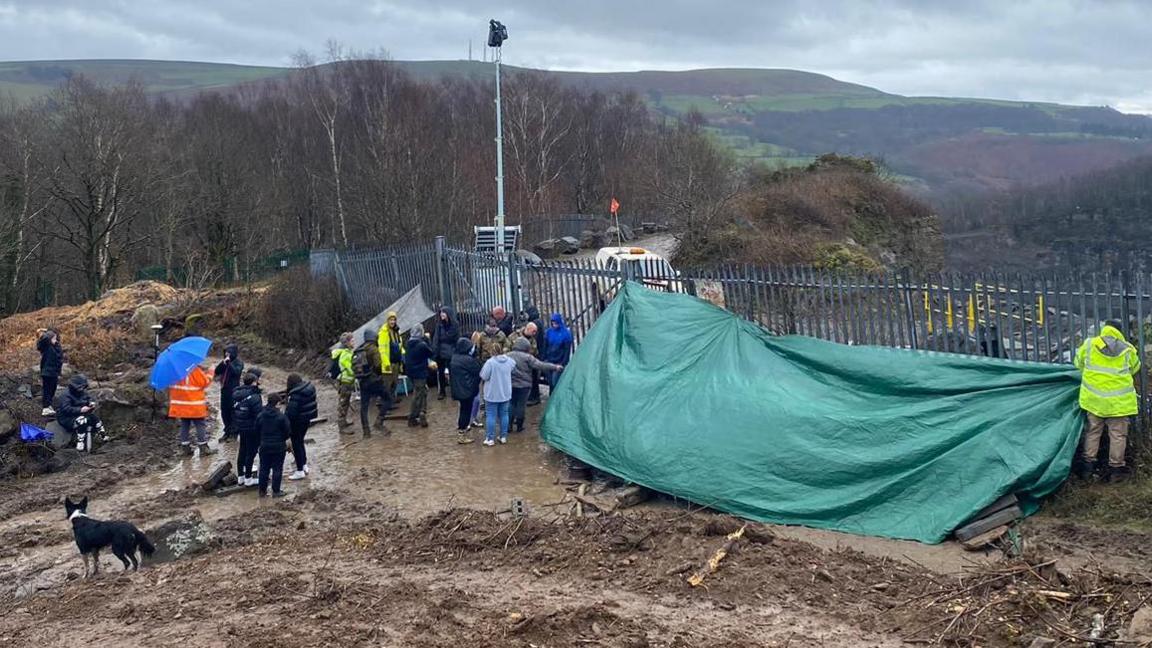
Protesters at the entrance to the Craig-yr-Hesg quarry in Glyncoch, Pontypridd
- Published
Residents in one of the most deprived areas of Wales have protested at the site of a quarry which has been given permission to expand.
People living near the Craig-yr-Hesg site in Pontypridd, Rhondda Cynon Taf, say they are "angry" and "astounded" at the Welsh government which, they claim, does not understand what life is like there.
In October 2022, Climate Change Minister Julie James permitted the expansion of the quarry in the Glyncoch after an appeal.
The owners of the quarry said the concerns were not substantiated and that quarrying is a "highly regulated" activity.
Children playing near toxic waste, fear residents
- Published19 January 2023
UK's last opencast coal mine shuts after legal row
- Published30 November 2023
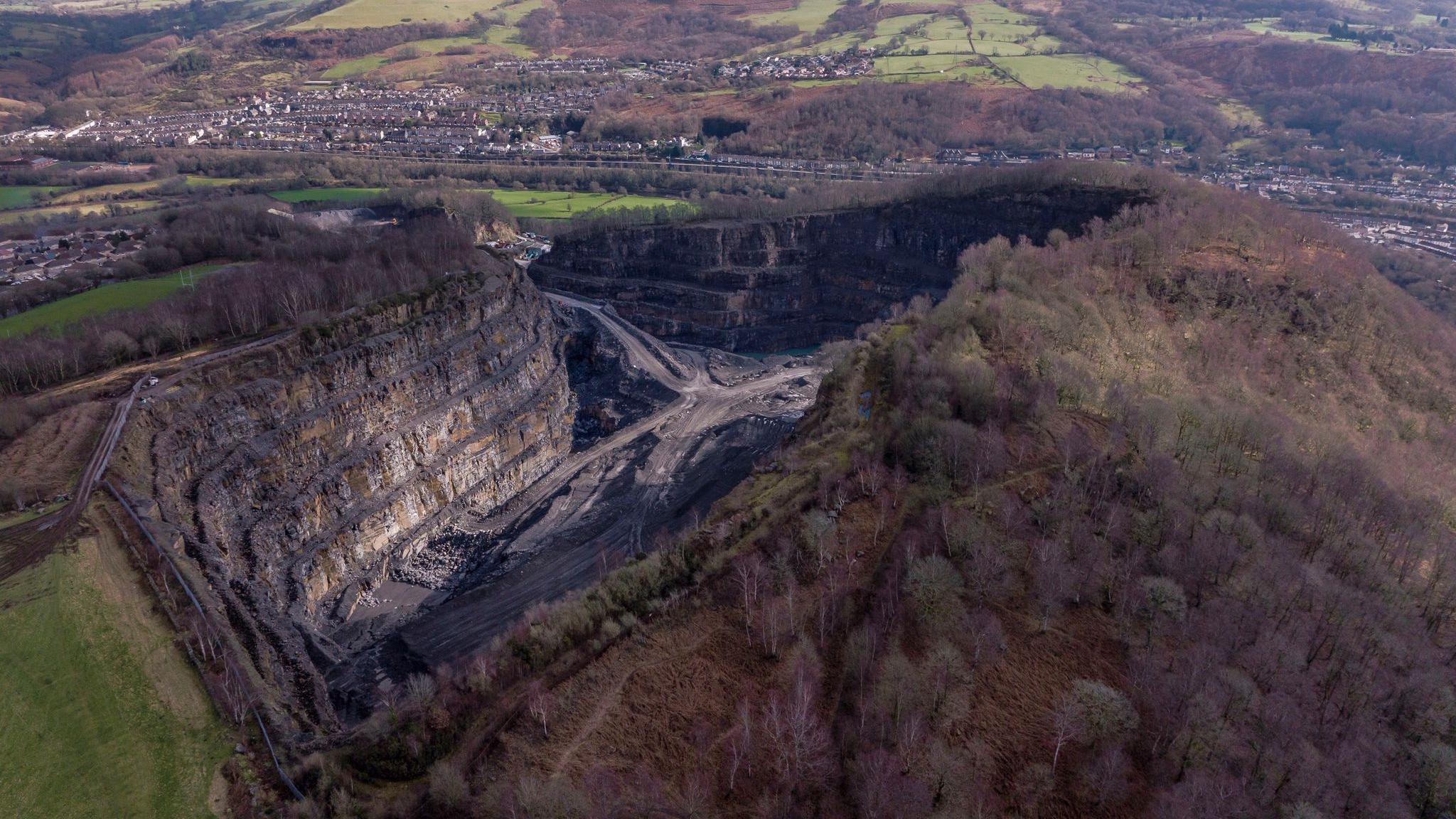
An extra 10 million tonnes of stone will be quarried from Craig-yr-Hesg
Local people are concerned about the effect on wildlife, their homes and health by quarrying of millions of tonnes of sandstone at the site.
South Wales Police said the protest at the quarry had been peaceful.
Before the appeal, expansion plans had been rejected twice by Rhondda Cynon Taf council's planning committee.
The planning inspector acknowledged there "would be some limited harm to local amenity" from noise and in air quality. But the inspector felt that planning conditions would keep the effects to "an acceptable standard".
It was also noted that previous objections were "anecdotal and not supported by objective, independent evidence".
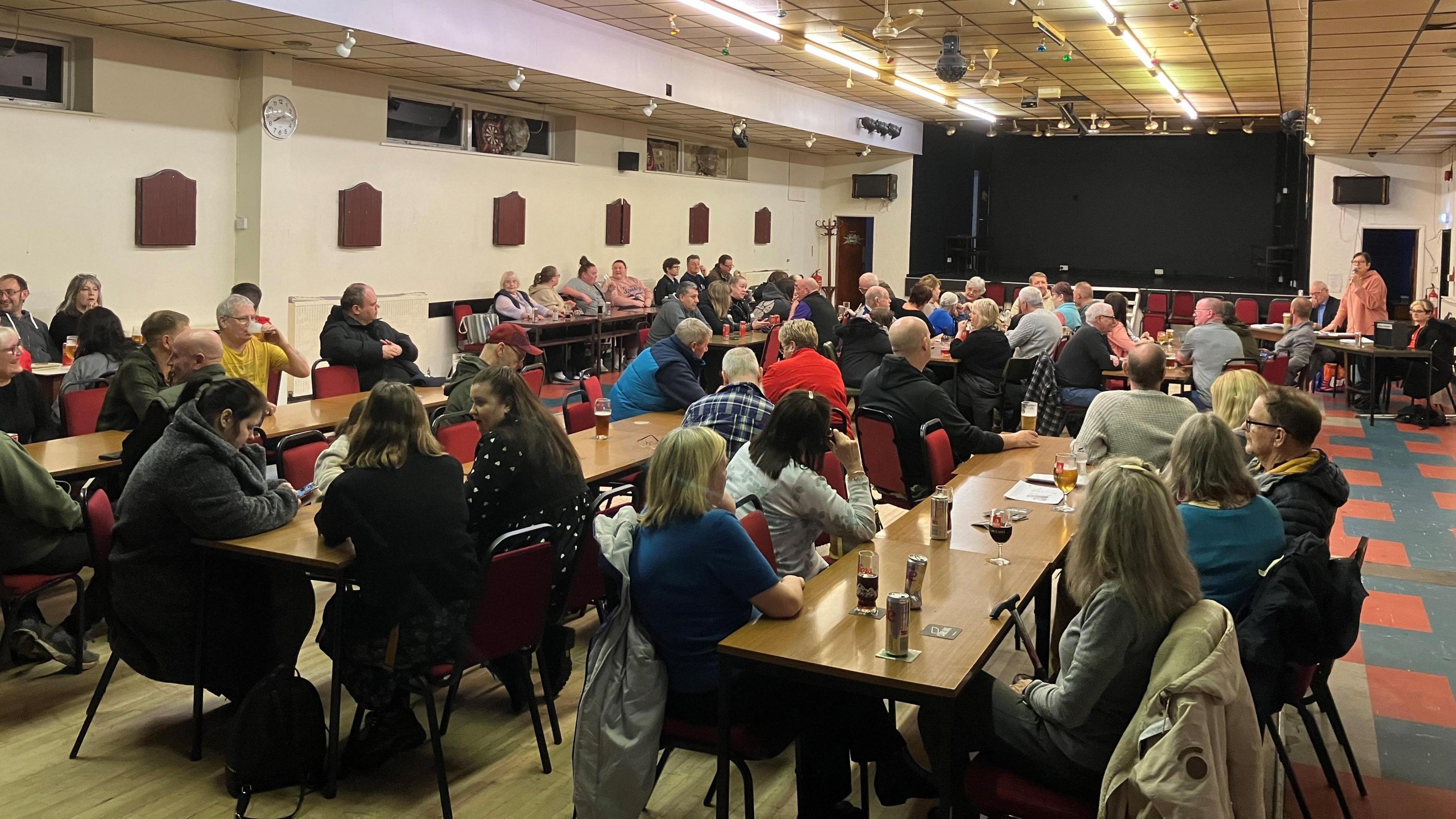
About100 people were at a public meeting in Glyncoch in March
"Significant weight" was given to the type of stone at the quarry.
Pennant sandstone is used in skid resistant road surfaces and the stone at Craig-yr-Hesg is described as "one of the highest quality... not only in south Wales, but the UK".
An extra 10 million tonnes of the stone will be quarried at the expanded site until 2047.
Residents have organised public meetings against the expansion, as clearance work has started on the land around the quarry.
Their concerns include the effect on wildlife and green areas and what they fear will be negative effects on the health of people and their homes.
The Glyncoch 1 ward is one of the 5% most deprived areas in the country, according to the Welsh government.
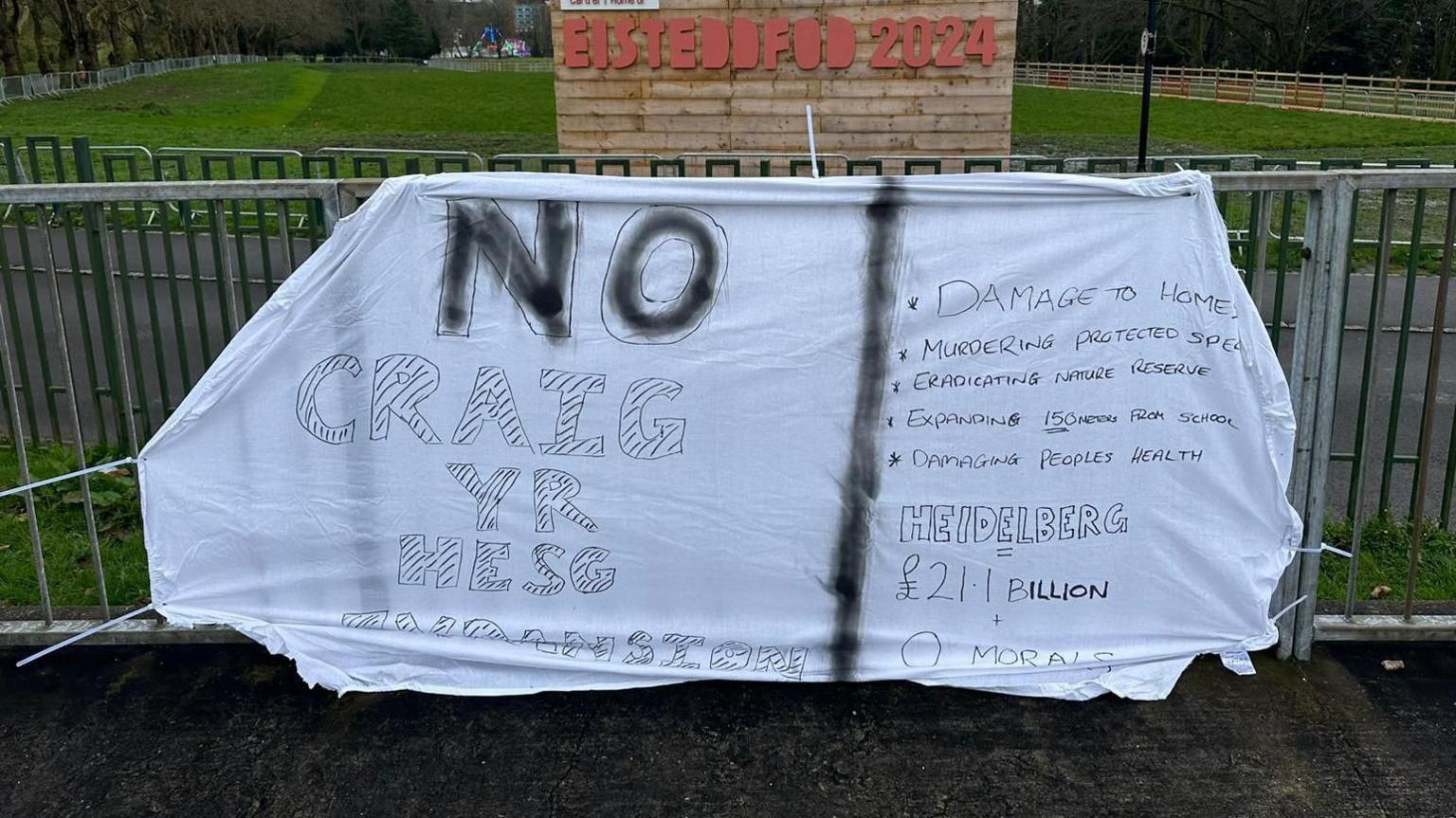
Protesters have put up this sign at Ynysangharad Park in Pontypridd
Annemarie Coggins, who has lived there all her life, is an asthma sufferer.
She told Newyddion S4C she believes her condition has been worsened by the quarry.
"To me, the importance of health outweighs the importance of the substance," she said.

Annemarie Coggins is worried about the effects of the quarry expansion
With the expansion the quarry will grow to within a few hundred metres of her street.
When there's blasting at the quarry, Annemarie said it was "like an earthquake".
She said she was angry at the Welsh government for allowing the quarry expansion as they "don't experience all the issues... they are not suffering with asthma and (lung disease) COPD".
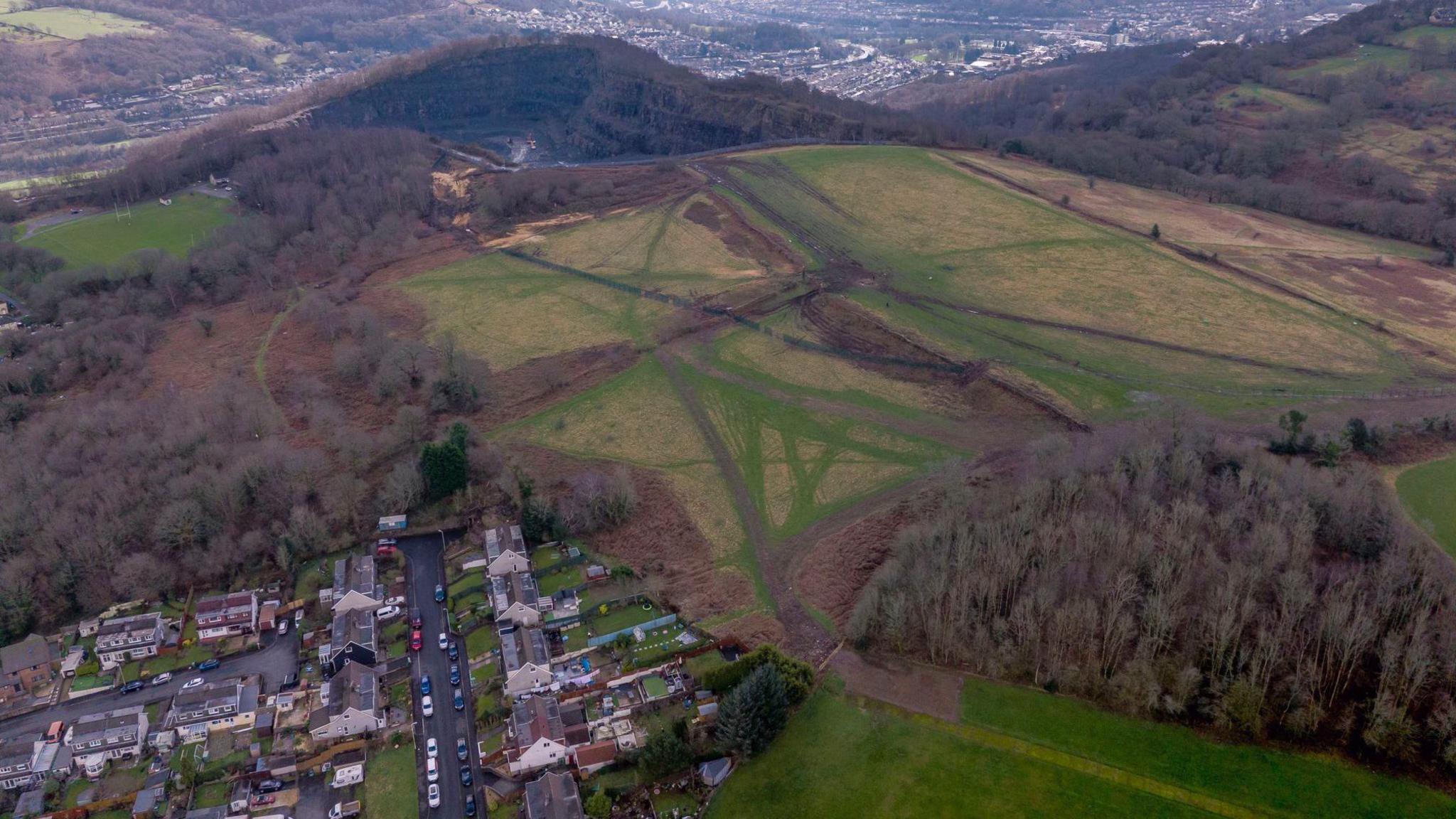
The quarry expansion will bring the quarry closer to houses
Several residents were eager to show the Newyddion S4C cameras cracks and faults in the walls of their homes and external boundary walls. They claim the damage has been caused by blasts at the quarry.
Local Labour councillor Doug Williams said he had been diagnosed with COPD and emphysema recently and blamed dust generated by the quarry.
He also said he was regularly contacted by residents who say their homes have been damaged by blasts from the quarry.
He was "absolutely astounded" by the decision to allow the expansion, saying if the minister had visited the area she would have "seen for herself there's something up here".
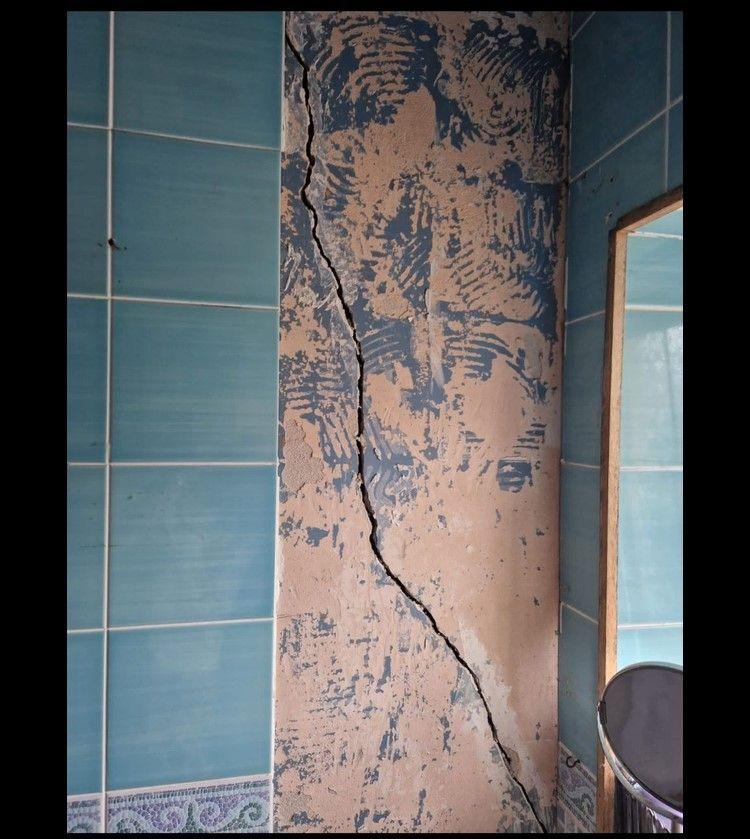
Some people claim cracks in their houses are a result of blasting at the quarry
Plaid Cymru MS Heledd Fychan has also been critical of the decision and claimed the local community has been "completely ignored”.
"They are being punished because a big company can afford lawyers and barristers and so on and yet no-one seems willing to support them [local residents] in their fight."
Ms Fychan also claimed the Welsh government was inconsistent in declaring a climate emergency but allowing the quarry expansion.
The Welsh government said its ministers could not comment on the decision to allow the appeal as under planning laws, the decision was final.
Heidelberg Materials, the quarry owners, issued a lengthy statement saying that the appeal found that the residents' concerns were "not substantiated by the technical evidence" presented by the company which was accepted by the local council.
The company said the appeal concluded that the proposals, with their mitigation measures, would comply with the relevant Welsh planning policy.
It said it had carried out breeding bird surveys and was working with its ecologist to ensure that the work has no impact on skylarks in future.
The company also said its sector was "highly regulated" and it will "work hard to minimise any potential impacts from our operations on our neighbours" and emphasised it had won costs from the local authority during the appeal process.